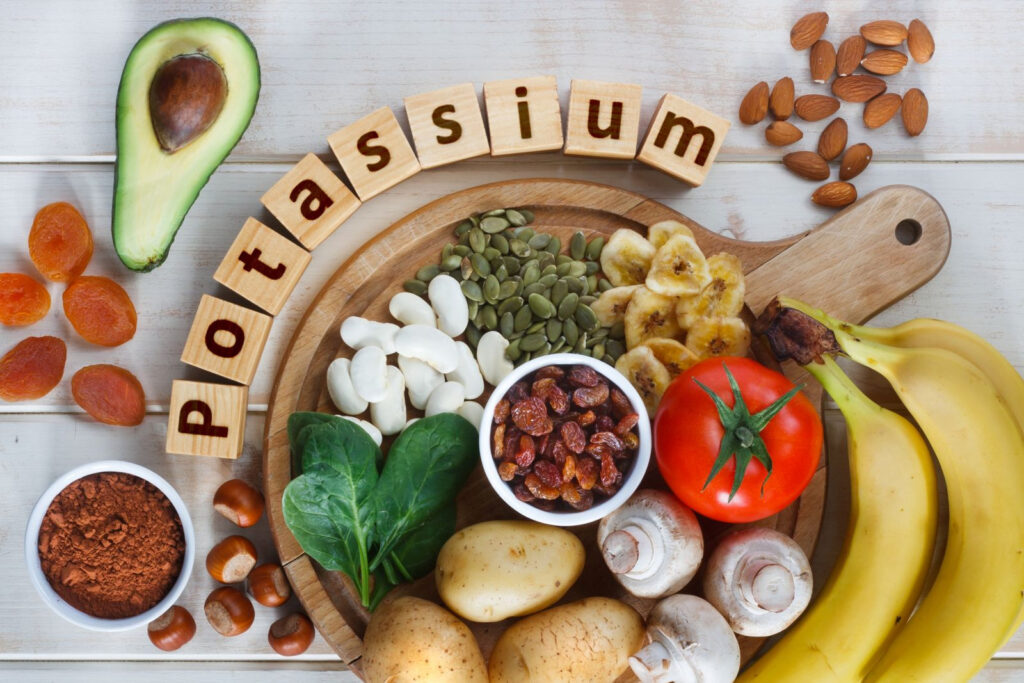Introduction
Maintaining a heart that is in good health is very important for one’s general well-being and for living a long life. Along with regular exercise and a heart-healthy lifestyle, proper nutrition plays a vital role in supporting cardiovascular health. In this article, we will explore ten essential nutrients that are key to nourishing your heart. By incorporating these nutrients into your diet, you can promote heart health and reduce the risk of cardiovascular diseases. Let’s dive into the world of heart-healthy nutrients and discover how they benefit your cardiovascular well-being.

1. Omega-3 Fatty Acids
Omega-3 fatty acids are unsaturated fats that have been shown to reduce inflammation and promote heart health. They help lower triglyceride levels, decrease blood pressure, and support overall heart function. Include sources of omega-3 fatty acids in your diet, such as fatty fish (salmon, tuna, and sardines), flaxseeds, chia seeds, and walnuts.
2. Fiber
Dietary fiber is essential for heart health as it helps lower cholesterol levels, regulate blood sugar, and maintain a healthy weight. Incorporate fiber-rich foods like whole grains, fruits, vegetables, legumes, and nuts into your daily meals. Aim for a well-rounded diet that includes at least 25–30 grams of fiber per day.
3. Antioxidants
Antioxidants play a crucial role in protecting the heart from oxidative stress and reducing inflammation. They help prevent damage to blood vessels and promote cardiovascular health. Include antioxidant-rich foods in your diet, such as berries, dark chocolate, green leafy vegetables, colorful fruits, and nuts.
4. Potassium
Potassium is an essential mineral that supports heart health by regulating blood pressure and maintaining proper heart rhythm. Include potassium-rich foods like bananas, oranges, avocados, spinach, sweet potatoes, and beans in your diet. These foods help maintain fluid balance and support optimal heart function.

5. Magnesium
Magnesium is another vital mineral that contributes to heart health. It helps maintain a steady heart rhythm, supports muscle and nerve function, and helps regulate blood pressure. Incorporate magnesium-rich foods like dark leafy greens, nuts, seeds, whole grains, and legumes into your diet.
6. Vitamin D
Vitamin D is not only important for bone health but also plays a role in maintaining cardiovascular health. It aids in controlling blood pressure, decreasing inflammation, and enhancing overall heart function. Spend time outdoors in sunlight, consume vitamin D-rich foods like fatty fish, fortified dairy products, and egg yolks, or consider a vitamin D supplement if needed.
7. Vitamin E
Vitamin E is a substance that acts as an antioxidant. It helps protect the heart from damage caused by free radicals. It also helps prevent blood clots and supports the health of blood vessels. Add vitamin E-rich foods to your diet, like nuts, seeds, vegetable oils, and leafy green vegetables.
8. B Vitamins
B vitamins, such as B6, B12, and folic acid, are important for maintaining heart health. They assist in lowering levels of homocysteine, an amino acid that can harm blood vessels. Include foods that are high in B vitamins, such as whole grains, lean meats, fish, eggs, leafy green vegetables, and legumes.
9. Coenzyme Q10
Coenzyme Q10 is a naturally occurring compound that helps generate energy in cells and acts as an antioxidant. It supports heart health by promoting energy production in the heart muscle and reducing oxidative stress. Consider incorporating coenzyme Q10-rich foods like organ meats, fatty fish, and soybean oil into your diet.

10. Lycopene
Lycopene is a powerful antioxidant that gives certain fruits and vegetables their red color. It has been associated with a reduced risk of heart disease. Include lycopene-rich foods like tomatoes, watermelon, pink grapefruit, and papaya in your diet to support heart health.
Conclusion
By incorporating these ten vital nutrients into your diet, you can nourish your heart and support cardiovascular health. Remember to maintain a well-balanced diet that includes omega-3 fatty acids, fiber, antioxidants, potassium, magnesium, vitamin D, vitamin E, B vitamins, coenzyme Q10, and lycopene. Combined with regular exercise, stress management, and a smoke-free lifestyle, these nutrients can help reduce the risk of heart disease and promote a healthy heart for years to come.




